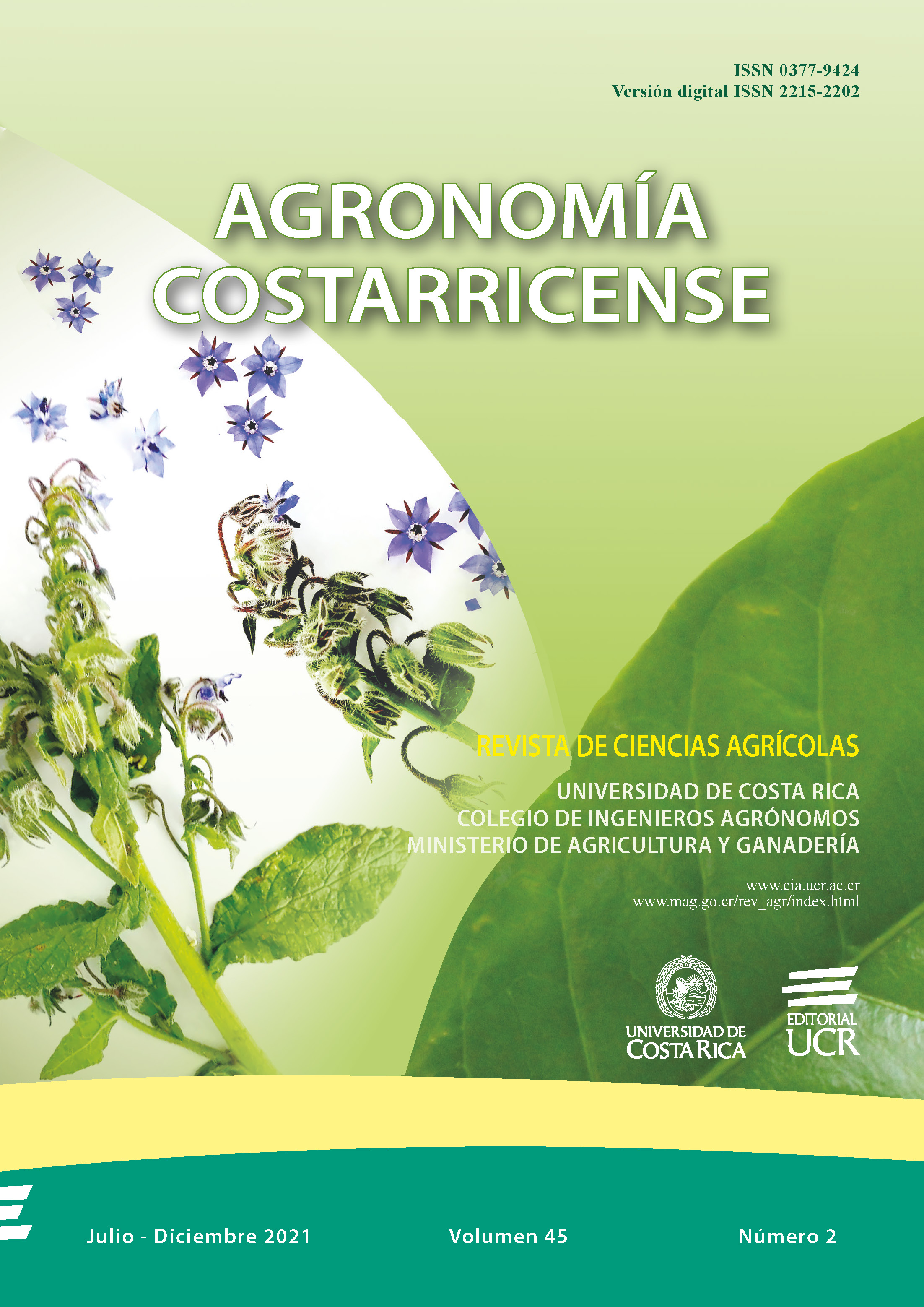Abstract
Introduction. The coffee leaf miner (Leucoptera coffeella), is a micro-Lepidoptera which larvae feed upon the coffee leaves, creating damage on top of the leaves, and causing defoliation with a high population of the plague. Nevertheless, the damage caused by this insect was not present until year 2019. Objective. Describe the management practices of the farms, that lead to an increasing population of L. coffeella and evaluate the biological efficiency of 5 insecticides to control the leaf miner. Materials and methods. During the first trimester of 2019 the population of the plague was followed in 3 farms with high populations of L.coffeella, causing defoliation of the coffee plant. Leaves with damages caused by the leaf miner were collected and checked. Also, a biological efficiency test with 5 insecticides for the plague was conducted. Results and conclusions. The attack of L. coffeella occurred in farms with similar management practices, for example, bared soil, intensive insecticide use, and lack of shade trees in the plantations. Pupae of Closterocerus sp. a parasitoid of L. coffeella was found in the leaves collected in the three locations. Insecticides based on novaluron and deltamethrin resulted in a good control of the plague.


